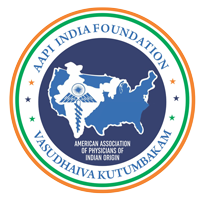Neonatology DM. DRNB
The disparity in DM Neonatology seats between India and the United States is a reflection of broader issues in the country’s healthcare system. While India has made progress in reducing infant mortality, a significant shortage of trained neonatologists continues to hinder the quality and accessibility of neonatal care. Addressing this gap requires a concerted effort to expand specialized training, improve healthcare infrastructure, and enhance access to neonatal care across the country. Only through these measures can India hope to provide the high-quality neonatal care that its newborn population deserves.
India has 5.5 DM Neonatology seats per one million newborns annually, compared to 73 per million in the USA.
India currently has 5.5 DM Neonatology seats per one million newborns annually. In contrast, the USA has 73 Neonatology seats per one million newborns. USA has 265 Neonatology fellowship seats for 3.6 million newborns. India currently has 109 DM Neonatology seats, This indicates a stark difference in the availability of specialized training for neonatologists between the two countries.
India, with approximately 20 million births annually, needs more specialized Neonatologists to ensure adequate care and training across the country. The establishment of Neonatology departments in medical colleges will significantly enhance the capacity for neonatal care and improve outcomes for critically ill infants.
India’s healthcare system, despite significant advancements in recent years, still faces several challenges, particularly in specialized fields like neonatology. One stark example of this is the disparity in the number of DM (Doctorate of Medicine) Neonatology seats per million newborns between India and developed countries like the United States. India currently has just 5.5 DM Neonatology seats per one million newborns annually, while the United States boasts 73 such seats per million. This vast gap underscores the pressing need to address the shortage of highly trained pediatric specialists in neonatal care in India.
India, with its large population and a significant number of births every year, faces a unique set of challenges in providing adequate neonatal care. While India has made strides in reducing infant mortality in recent years, it still lags behind developed nations in terms of healthcare infrastructure, access to trained specialists, and overall quality of care. A key factor in this gap is the lack of sufficient trained neonatologists to manage the increasing demand for neonatal services.
Disparity in Training Opportunities
In India, the number of DM Neonatology seats is disproportionately low. At just 5.5 seats per million newborns annually, the country struggles to meet the demand for qualified neonatologists. This scarcity leads to overcrowding in neonatal care units, often with insufficient staff to handle the increasing number of critically ill infants. Many areas, especially in rural and underserved regions, have limited access to specialized neonatal care, contributing to higher neonatal mortality rates in these regions.
In contrast, the United States, with its advanced healthcare system, has 73 DM Neonatology seats per million newborns annually, a figure that far exceeds India’s. This disparity reflects the USA’s robust healthcare infrastructure, which includes not only a higher number of specialized training programs but also more extensive investment in pediatric and neonatal care. The availability of more neonatology training seats ensures that the country can meet the healthcare needs of its newborn population, improve survival rates, and reduce neonatal mortality.
Implications of the Shortage
The shortage of trained neonatologists in India has several implications. First, it leads to a scarcity of specialists who can handle complex cases, especially in tertiary care centers. In smaller hospitals and rural areas, general pediatricians often take on neonatal responsibilities, which can be problematic given the specialized nature of neonatal care. Second, the shortage contributes to a disproportionate workload on the existing neonatology workforce, leading to burnout and potentially suboptimal care for infants.
The low number of trained specialists also affects the overall quality of neonatal intensive care units (NICUs) across the country. While some urban centers and private hospitals may have well-equipped NICUs with skilled staff, many public hospitals and smaller facilities struggle with inadequate resources and a lack of qualified personnel. This discrepancy exacerbates health inequities and undermines the goal of achieving universal healthcare for all newborns.
Addressing the Gap
To address the gap in the number of DM Neonatology seats, several measures can be considered. First, there is a need for greater investment in medical education, with a focus on increasing the number of specialized training programs in neonatology across the country. Expanding these programs would help meet the growing demand for highly skilled neonatologists. Additionally, greater incentives for healthcare professionals to work in rural and underserved areas, such as loan forgiveness or higher pay, could help improve access to specialized neonatal care in these regions.
Second, collaboration between government, private healthcare providers, and international organizations can help improve neonatal care infrastructure. This includes not just the availability of trained personnel but also better equipment, better management of NICUs, and targeted training for healthcare workers who are not neonatologists but play a role in newborn care.
